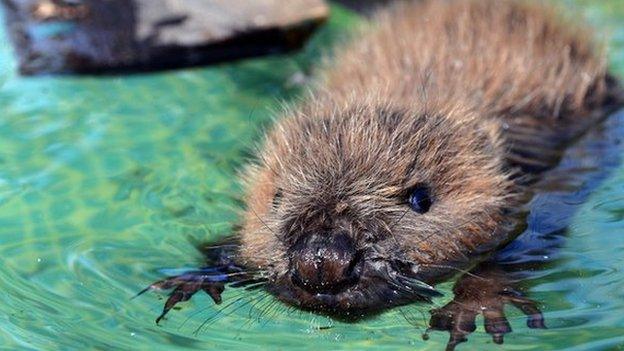Pregnant beavers shot by landowners in Tayside
- Published
There are calls for beavers in Scotland to be given legal protection
Beavers that were heavily pregnant or had recently given birth are among those shot by landowners in Tayside.
The news has led to demands for restrictions on shooting during the breeding season and renewed calls for Scotland's beavers to receive legal protection.
The country has two beaver populations, despite the species being hunted to extinction in the 16th Century.
The Scottish government said it was taking time to consider the issue.
An official trial re-introduction has been conducted at Knapdale Forest in Argyll.
But beavers are also thriving in the Tay catchment.
Farmers and landowners have said the animals damage trees and cause flooding in fields alongside burns and rivers.
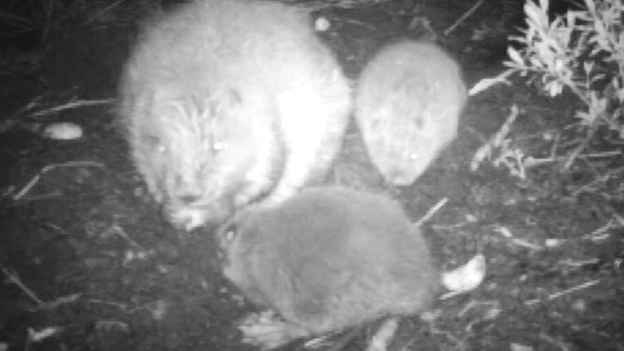
Some of the beavers found shot were pregnant or had recently given birth
Experts at Edinburgh Zoo have now carried out post-mortem examinations on 23 beavers from Tayside.
They concluded that 21 had been shot, although other sources have said the total number of animals killed in this way is significantly higher.
A freedom of information request by BBC Scotland has revealed:
Two pregnant animals were shot. The size and weight of the foetuses indicates they were very near full term
Two other females which were shot had recently given birth
There were concerns about the length of time it would have taken some of the 21 animals to die
At least one animal contained lead shot. It is against the law to use lead shot to kill an animal in water.
In a statement, the Royal Zoological Society of Scotland said: "In our capacity as advisors to the Scottish government on beaver management, RZSS has written both to Scottish Natural Heritage and the Scottish government to raise welfare concerns over a small number of deceased beavers sent in by landowners.
"This specifically relates to how they were shot, the distance they were shot from and, most significantly, the timing of dispatch, particularly of females with dependent young still in the lodge.
"We are currently awaiting a response from the minister before making any further comment."
Nick Halfhide, Scottish Natural Heritage's director of operations, told BBC Scotland: "We share welfare concerns about beavers shot with inappropriate firearms and ammunition, and those with dependent young.
"We have asked land managers not to shoot beavers in Tayside but instead seek advice from us on mitigation, such as protecting trees and discouraging dam building.
"However, if they choose to use lethal control, we have offered them advice on how to do so humanely."
He added: "We have contracted the Royal Zoological Society of Scotland to give advice to land managers in Tayside on how to manage beaver impacts on their land. This service is freely available, and we strongly encourage farmers and other land managers to use it."
Illegal releases
Scottish Land & Estates, which represents landowners, said the beaver population in Tayside had grown following illegal releases a decade ago.
Policy officer Anne Gray said: "As beavers have no natural predators, it would be expected that some form of control would be required to manage populations and their negative impacts.
"Indeed, management, including lethal control, is common in other parts of Europe that have beaver.
"The Scottish government has still not provided advice on the calibre of rifle or ammunition that should be used if lethal control is the only reasonable option for management.
"Our own advice to farmers and landowners has been to control only where it is necessary, to look at all options and if lethal control is the only reasonable option, to carry this out in the most humane way possible."
Decision delayed
In March 2012, the then environment minister, Stewart Stevenson, reversed a decision to trap beavers on Tayside and delayed a final decision on their fate by three years.
He had been given three options in a report by SNH - to cull the animals, accept that beavers had been reintroduced to Scotland, or to monitor the population for a longer period.
Mr Stevenson said: "There is potential for an important and unwelcome precedent to be set so we must consider environmental and other impacts when we make decisions.
"After careful consideration of all the various factors, my view is that the best way forward is to allow the beavers to remain in place for the duration of the official trial beaver reintroduction in Knapdale in Argyll.
"We will take a decision on the future of beavers in Scotland - both those in Knapdale and on Tayside - at the end of the trial period in 2015."
But almost four years later, the Scottish government has still not reached a decision on the issue.
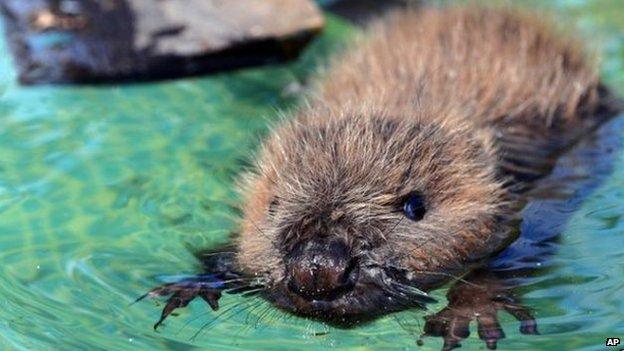
Beavers disappeared as a native species in Scotland hundreds of years ago
A spokeswoman for Environment Minister Aileen McLeod told BBC Scotland: "The minister will be taking time to consider the issue carefully and listen to the views of stakeholders before making a decision on the future of beavers in Scotland.
"There is currently no legal protection for beavers in Scotland. We are aware that farmers on Tayside are experiencing issues with beavers and encourage land managers to consult with SNH on mitigation measures, rather than resort to lethal control.
"In the event that a decision is made to reintroduce beavers, consideration will be given to the appropriate form of legal protection."
Farmers' leaders believe a decision is long overdue.
They believe beavers have no place in the largely flat, fertile farmland of Tayside which is susceptible to flooding.
Andrew Bauer, of NFU Scotland, said: "If somebody has used a gun to shoot and the animal has moved out of range and the animal has been wounded, that's sad.
"But that unfortunately is the product of a situation where a lack of action by the authorities over the years has effectively left the farmers being the only ones doing the management in that area."
'Simply wrong'
Scottish Green MSP Alison Johnstone, deputy convener of Holyrood's cross-party group on animal welfare, has called on ministers to "get off the fence".
She said: "Animal cruelty is simply wrong, and there can be no excuses for inhumane killing of wild creatures in 21st Century Scotland.
"Scottish ministers need to get off the fence, accept that beavers have a positive role to play in terms of biodiversity, and that they deserve legal protection.
"The poor treatment of these amazing creatures will shock many people, and it suggests that animal welfare is not a Scottish government priority."
Animal welfare campaigners say public opinion is on the beavers' side.
Libby Anderson, of One Kind, said: "The beavers are here. The Scottish government has decided to tolerate them. So it really is up to them to reflect public opinion and give them some protection.
"The public care about animal welfare and really don't want to see this kind of suffering."
- Published24 July 2015

- Published25 May 2015
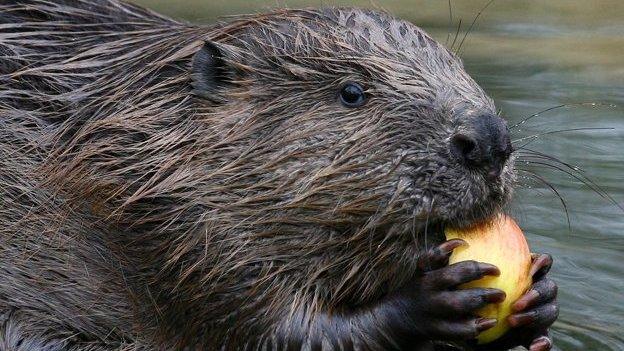
- Published19 May 2015
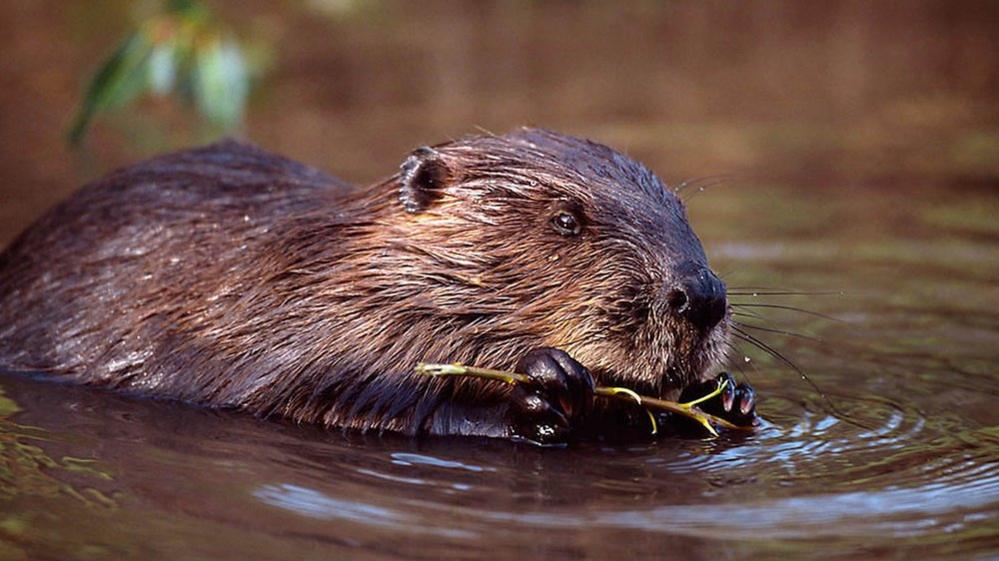
- Published29 April 2015
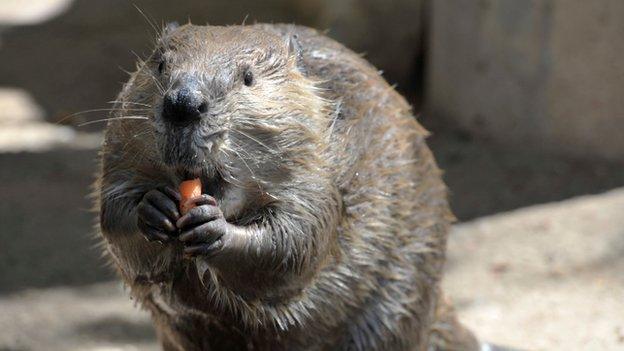
- Published20 November 2014
